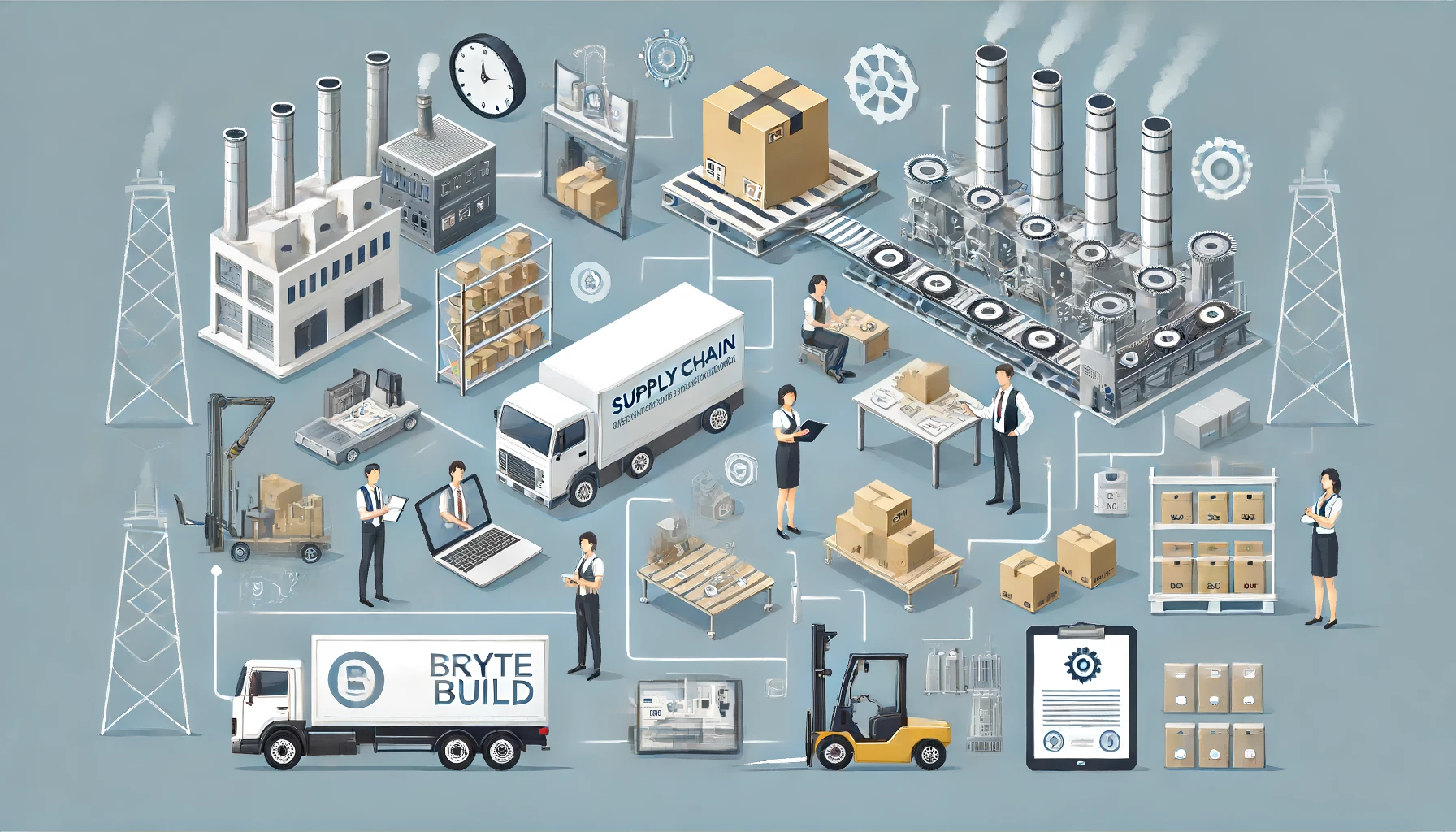Introduction to Supply Chain Management (SCM)
Supply chain management (SCM) is the backbone of global trade and commerce. It involves the oversight of the entire production flow of goods and services, from sourcing raw materials to delivering finished products to consumers. As industries grow and evolve, the complexity and scope of SCM have dramatically expanded. In today’s interconnected world, SCM is no longer just a business function—it is a strategic driver that determines the success or failure of an organization.
Efficient SCM ensures businesses can meet consumer demand quickly, reduce operational costs, and remain competitive. This article delves into the future of SCM, exploring emerging trends, technologies, and best practices that are reshaping this critical field. Additionally, we will highlight how professionals can enhance their SCM expertise, particularly through the programs offered by Al Mithaq Institute.
The Evolution of Supply Chain Management
Early Beginnings: From Local to Global
SCM has its roots in basic transportation and logistics, where raw materials were transported to factories for manufacturing. Historically, supply chains were localized, with businesses dealing with limited suppliers and customers. However, as industrialization took hold and transportation infrastructure advanced, supply chains began to span larger geographic areas.
The key milestones of SCM’s evolution include:
- The Industrial Revolution (late 1700s-1800s), which introduced mass production, creating a need for more efficient logistics.
- The introduction of the shipping container in the mid-20th century, which revolutionized global trade.
- The rise of e-commerce, which demands rapid fulfillment and real-time tracking of goods.
- The adoption of advanced technologies like Enterprise Resource Planning (ERP) systems in the 1990s, enabling businesses to optimize inventory and production.
Today’s supply chains are far more intricate and international, reflecting the rapid globalization of trade and advances in digital technology.
The Globalization Effect
Globalization has had a profound impact on supply chains. It has enabled businesses to tap into international markets, access cheaper labor, and source raw materials from different parts of the world. However, this also introduces complexities such as navigating multiple regulations, dealing with currency fluctuations, and managing geopolitical risks.
The future of supply chain management will witness even further globalization. As companies expand into new markets, SCM will become more decentralized, yet interconnected, creating a more dynamic and challenging environment.
Technological Innovations Transforming Supply Chain Management
Artificial Intelligence (AI) and Machine Learning
One of the most transformative technologies in SCM is artificial intelligence (AI). AI has revolutionized everything from inventory management to route optimization. The ability to analyze vast amounts of data in real-time allows businesses to make informed decisions that were once impossible.
AI-powered tools in SCM can:
- Predict Demand: By analyzing past purchasing trends, AI models can predict future demand and suggest inventory replenishments.
- Optimize Routes: AI can assess traffic patterns, weather conditions, and historical data to suggest the most efficient delivery routes, reducing delivery times and costs.
- Enhance Customer Experience: Chatbots and virtual assistants powered by AI are improving customer service by responding instantly to inquiries, tracking orders, and resolving issues in real-time.
Internet of Things (IoT)
The Internet of Things (IoT) is a network of connected devices that communicate with each other through the internet. In SCM, IoT is used to monitor goods in transit, track their location, and even measure conditions like temperature and humidity. Smart sensors embedded in products or containers allow supply chain managers to get real-time updates on their shipments, providing unparalleled visibility across the entire supply chain.
IoT benefits include:
- Real-Time Monitoring: Continuous tracking ensures goods are transported safely, reducing theft or loss.
- Predictive Maintenance: Sensors placed on machinery in factories or vehicles predict when maintenance is required, reducing downtime.
- Improved Efficiency: Automated systems powered by IoT data can streamline processes, cutting down on inefficiencies.
Blockchain Technology
Blockchain, best known for powering cryptocurrencies like Bitcoin, has profound applications in supply chain management. By creating secure and transparent records of transactions, blockchain technology can enhance supply chain visibility, reduce fraud, and ensure the authenticity of products.
Blockchain applications in SCM include:
- Transparency and Traceability: Each step in the supply chain is recorded on an immutable blockchain, allowing companies and consumers to trace the origin of products and verify ethical practices.
- Smart Contracts: Blockchain enables "smart contracts" that execute automatically when certain conditions are met, ensuring faster, more secure transactions.
- Fraud Prevention: Blockchain provides a transparent and secure way to track every aspect of the supply chain, from sourcing to delivery, reducing the risk of counterfeit goods.
Robotics and Drones
Robotics has revolutionized warehouse management. Automated robots now carry out tasks like sorting, picking, and packaging, reducing the time and labor needed to prepare goods for shipment. These robots work autonomously or are remotely controlled, optimizing operational efficiency.
Drones, on the other hand, are redefining last-mile delivery. By using drones, companies can deliver small parcels directly to customers, bypassing traditional delivery systems and reducing delivery times. Drones also help reduce transportation costs and have the potential to significantly lower carbon footprints.
Globalization and the Future of Supply Chain Management
The Expanding Global Market
As global markets continue to grow, the future of SCM will be defined by businesses' ability to operate effectively across borders. The expansion of digital trade and the ease of accessing global markets will bring new challenges and opportunities for businesses. However, international supply chains are exposed to risks such as:
- Geopolitical Instability: Trade wars, tariffs, and political instability in regions like the Middle East or Asia can severely disrupt supply chains.
- Regulatory Compliance: Different countries have different regulations related to labor laws, environmental standards, and customs procedures, creating complexities for international logistics.
- Cultural and Communication Barriers: Misunderstandings between companies from different cultures can lead to delays and inefficiencies in supply chains.
The Importance of Local and Global Integration
The future of SCM will require companies to integrate both local and global strategies. While globalization offers access to new markets, local supply chains will still play a crucial role. For example, local warehouses, regional distribution centers, and last-mile delivery networks will continue to provide flexibility and speed in fulfilling customer orders.
Understanding the complexities of international SCM requires highly skilled professionals. Those who are well-versed in cross-border logistics, international trade law, and supply chain operations across different cultures will be in high demand.
Al Mithaq Institute’s programs in business management, project management, and international trade offer students the tools and knowledge to succeed in the global supply chain landscape.








